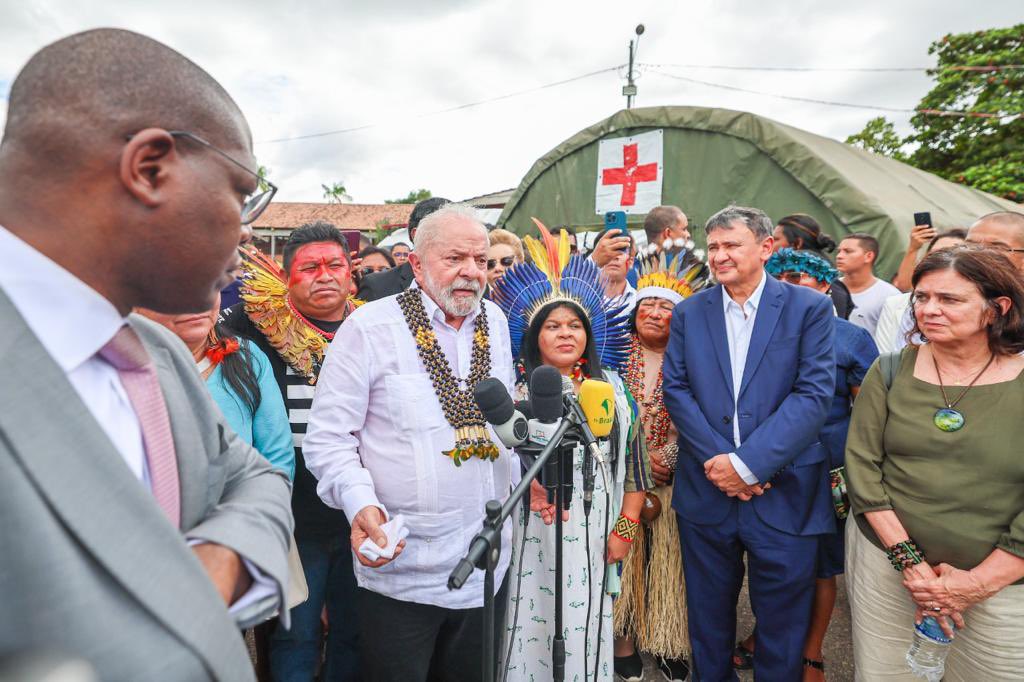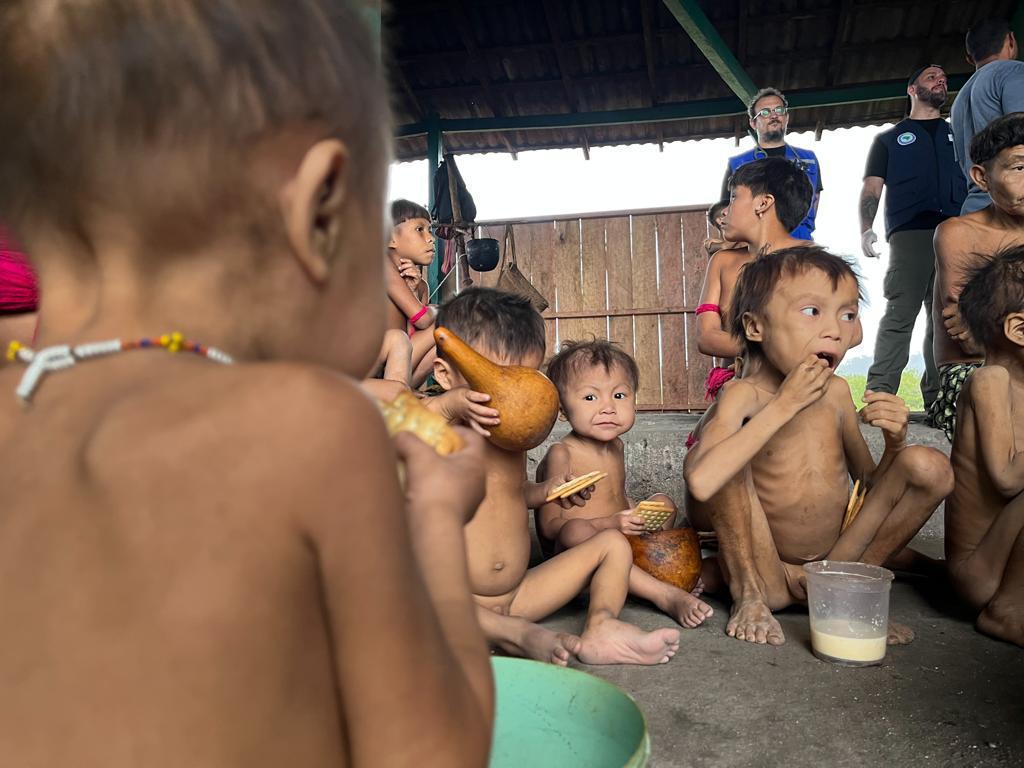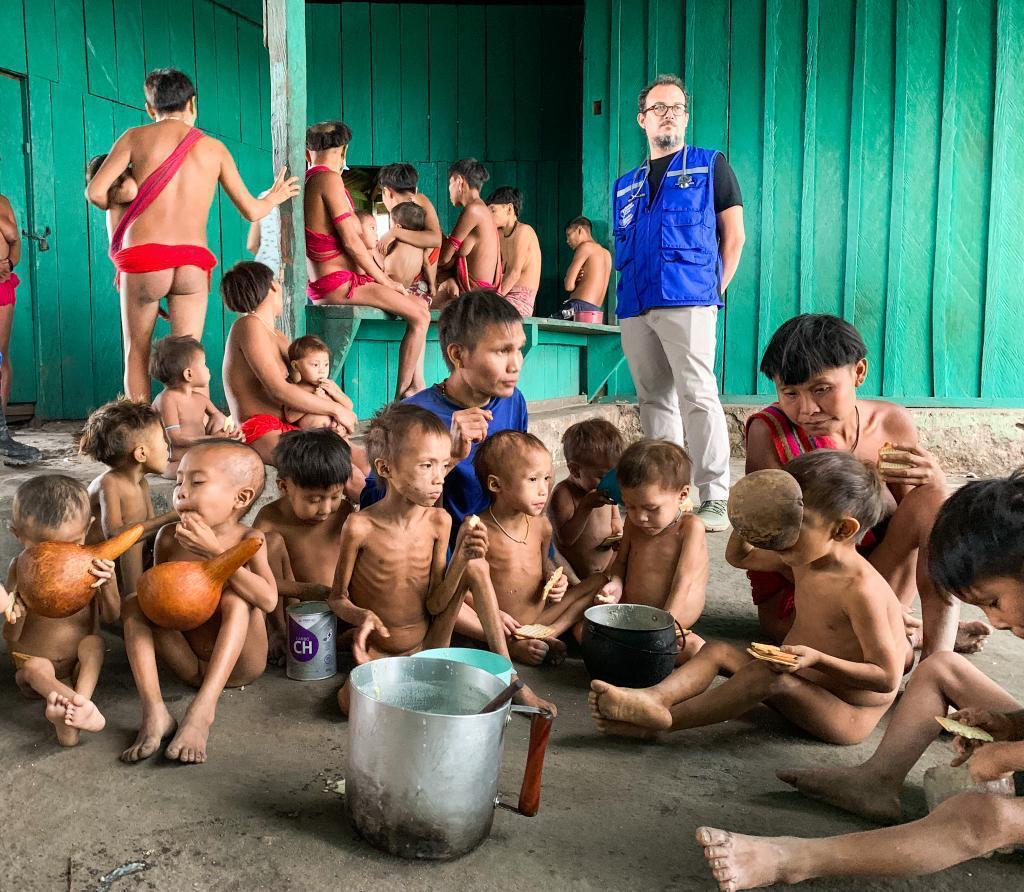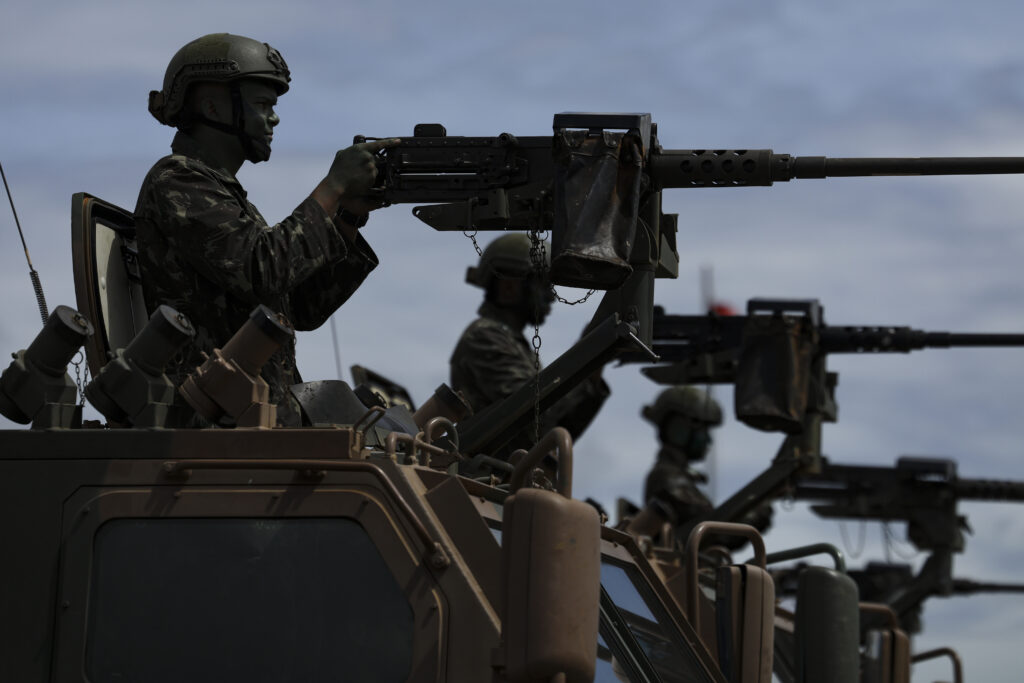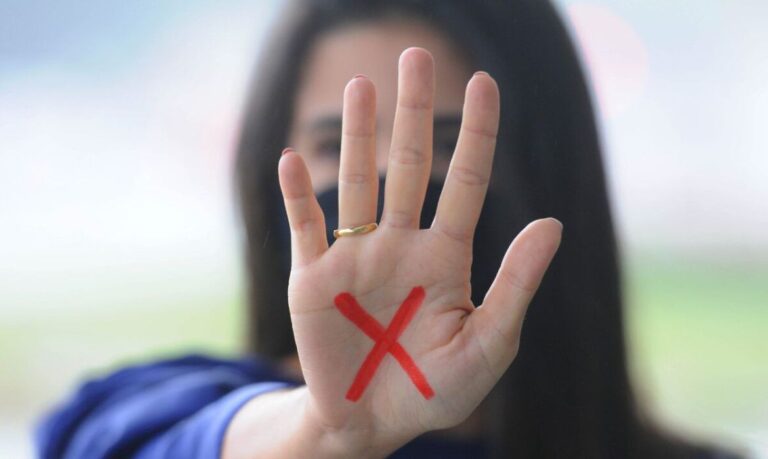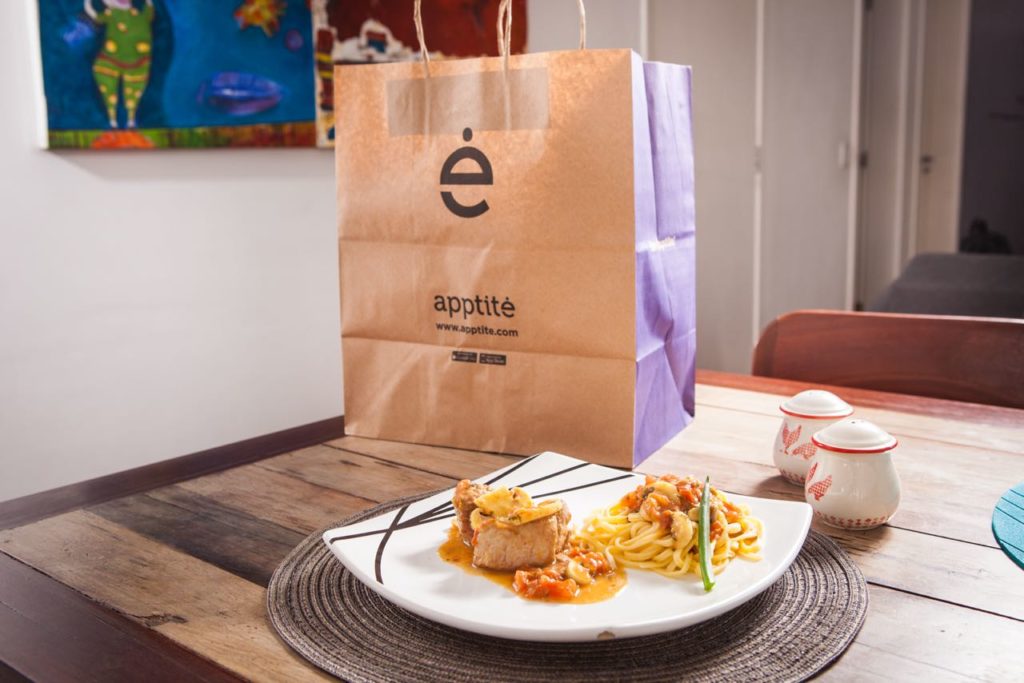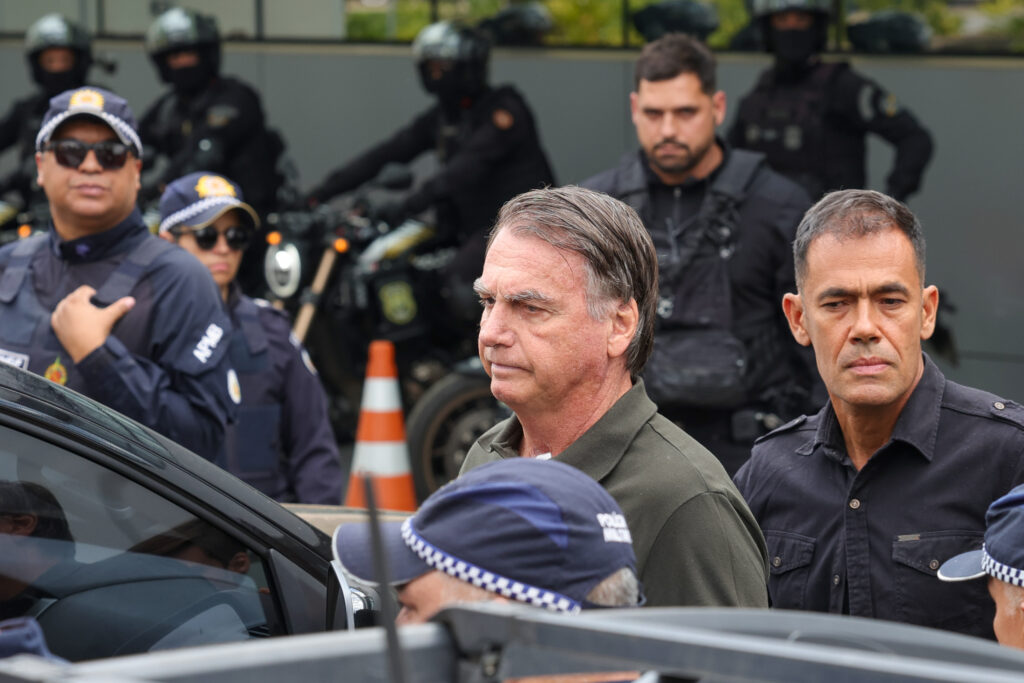São Paulo, Brazil – Brazil’s Health Ministry declared a public health emergency in the Yanomami indigenous territory, in the northern state of Roraima which borders Venezuela, after identifying hundreds of children and elderly people with grave health conditions.
Yanomami is the largest indigenous reservation in Brazil, where 30,500 indigenous people live in 370 villages.
Since last Monday, teams from the Ministry of Health have been in the Yanomami region, where they found severely malnourished children and elderly people, in addition to many cases of malaria, pneumonia, diarrhea and other illnesses.
Because of the seriousness of the situation, the government declared a health emergency and created a Public Health Emergency Operations Center, which is set up to distribute basic health supplies including food baskets and medicine.
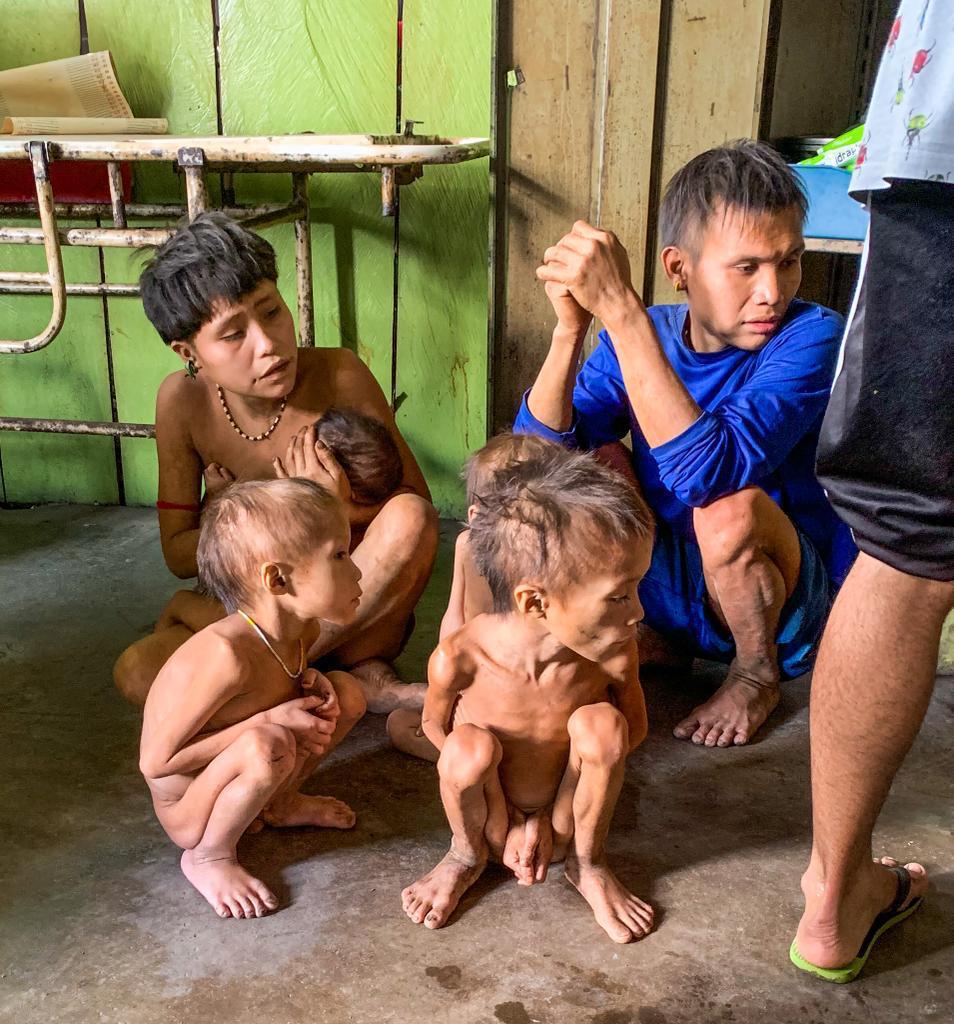
According to the recently created Ministry of Indigenous Affairs, at least 570 indigenous children under five years of age have died from malnutrition and other preventable causes in the Yanomami region in the last four years, under then-President Jair Bolsonaro.
The ministry reported 99 deaths of children between one and four years of age just last year. Also in 2022, more than 11,500 cases of malaria were registered in the area.
“What I saw here is inhumane”
On Saturday, President Luiz Inácio Lula da Silva went to Roraima to visit two indigenous hospitals that service the Yanomami region.
“What I saw here is inhumane,” said the president.
“More than a humanitarian crisis, what I saw in Roraima was a genocide. A premeditated crime against the Yanomami, committed by a government insensitive to the suffering of the Brazilian people,” he added, referencing the government of his predecessor.
Lula also promised more investments in health for indigenous peoples.
“Healthcare needs to go to the villages, not wait for people to go to the city [to get it]. We are going to treat indigenous as first-class people and improve their lives.”
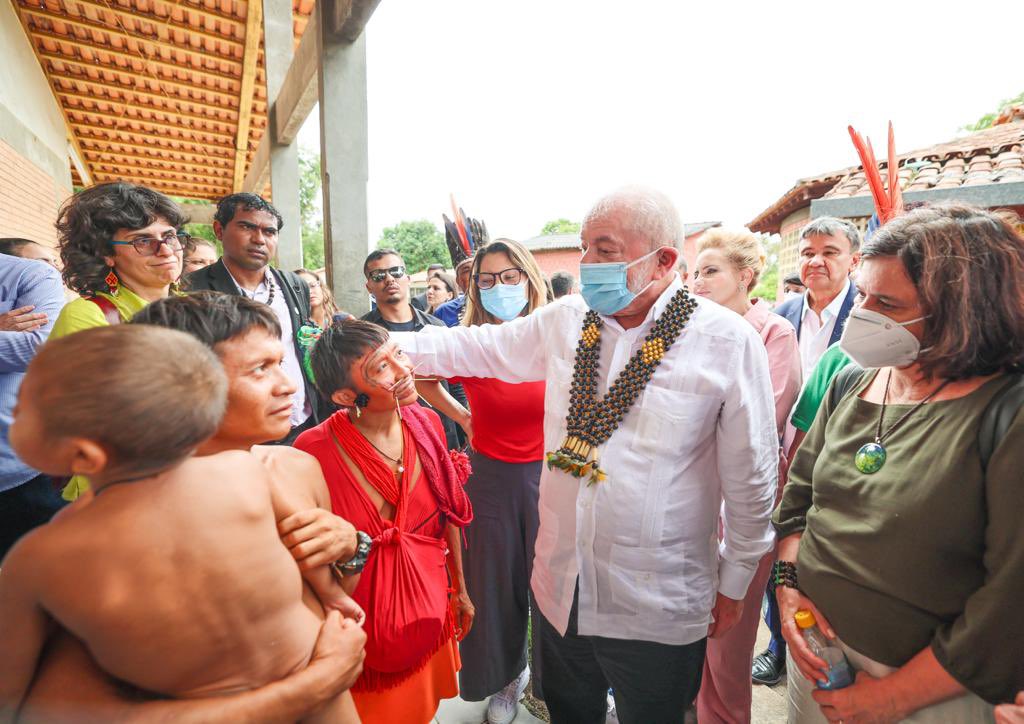
Included in Lula’s envoy to Roraima were the country’s ministers of health, justice and Indigenous affairs. Flávio Dino, the country’s justice minister, ordered an investigation into potential genocide and environmental crimes in the region. The investigation will reportedly be carried out by the Federal Police.
According to Minister of Indigenous Affairs Sônia Guajajara, it’s also necessary to hold the previous government accountable for having allowed this situation to get “to the point where we arrive here and find adults weighing like children, and children in a situation of skin and bones.”
Read more: Violence against Brazil’s indigenous communities “deepens” in 2021: New report
Ilegal mining in Yanomami land
The Yanomami indigenous reserve is the largest in the country in terms of territory and is frequently incurred upon by illegal miners, whose presence increased during Bolsonaro’s administration.
In 2020, the first year of the pandemic, illegal mining increased by 30% in Yanomami land, according to a report produced by the Hutukara Associação Yanomami (HAY) and Associação Wanasseduume Ye’kwana (Seduume), indigenous rights associations that operate in the region.
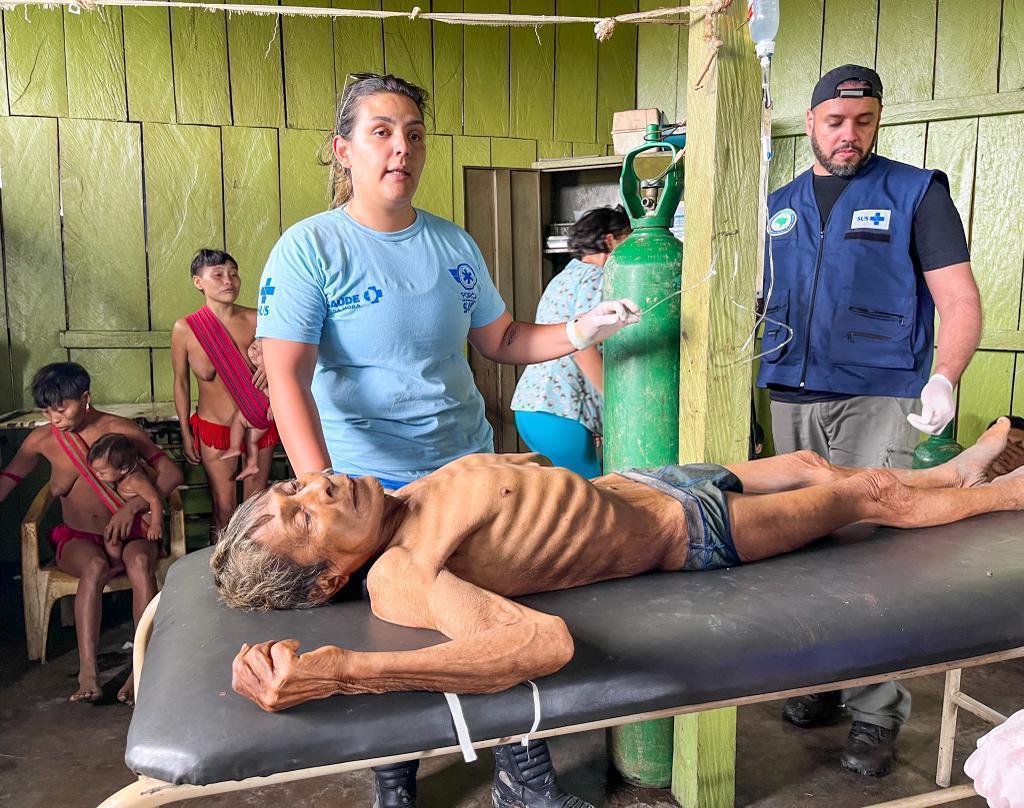
Illegal mining contributed to the worsening health situation. According to the government, at least 20,000 illegal miners have invaded the Yanomami land in recent years. Mercury used by illegal miners is flushed into nearby rivers, poisoning the water the indigenous communities use to drink and fish.
“One of the leaders I spoke with summed up the tragedy: ‘The fish eat the mercury, we eat the fish, we die’. Therefore, I repeat what I said during the campaign: There will be no illegal mining in indigenous lands,” said Lula.
Mission of the Ministry of Health
The health teams will remain on Yanomami land until January 25, at which time they will have 15 days to present a complete survey on the health situation in the region.
The Public Health Emergency Operations Center is expected to operate in the region for at least 90 days.
“In recent years, the Yanomami population has experienced a lack of assistance and difficulty in health care. Cases of malnutrition and food insecurity, especially among the more than 5,000 children, were recorded,” said the Ministry of Health in a statement.
